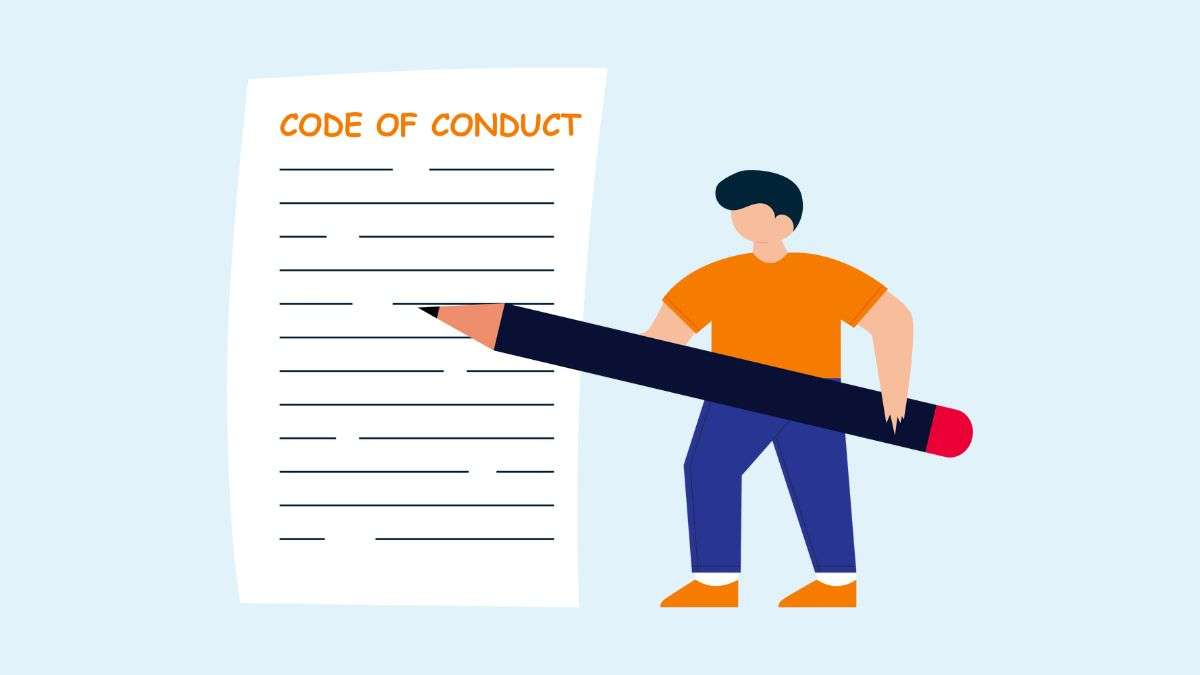Table of Contents
- Introduction
- Understanding Academic Publishing Integrity
- Why Academic Publishing Integrity Matters
- Navigating Challenges and Promoting Integrity
- Institutional Policies
- Conclusion
Introduction
Academic publishing integrity refers to the ethical standards and responsible practices upheld across all aspects of the scholarly communication process, from research to writing to peer review and publication. Maintaining integrity is crucial for ensuring reliability and advancing knowledge that positively impacts society.
Academic publishing integrity encompasses honest and transparent methodologies, accurate presentation of findings, proper attribution to previous work, and ethical authorship practices. Upholding these principles is vital for producing valid, high-quality research that stands up to scrutiny. Violations undermine trustworthiness and credibility.
Published research influences policies, clinical practice, technology innovations, and more. Flaws in integrity can have serious consequences, from putting patients at risk to perpetuating biases. Rigorous standards allow good science to prevail and positively impact people’s lives.
Researchers and authors have an ethical duty to report findings honestly, avoid misleading statistics or selective reporting, properly credit contributors, disclose conflicts of interest, and ensure original work is not plagiarized. Carefulness, transparency, and accountability are paramount.
Understanding Academic Publishing Integrity
Academic publishing integrity refers to the ethical standards and responsible practices upheld throughout the research and publication process. This includes accurately reporting data, transparently describing methodologies, and adequately attributing authorship to maintain trust and credibility in scholarly literature.
Academic publishing integrity means researchers and authors commit to honesty, accuracy, and transparency when conducting studies and disseminating findings. This commitment rests on several fundamental principles:
- Honestly and accurately collect, analyze, and report data.
- Transparently describing research methodologies so others can replicate the process.
- Properly attribute authorship and cite sources to recognize contributions.
- Disclosing conflicts of interest or sponsors that could introduce bias.
- Correcting the record if errors or omissions are discovered after publication.
Upholding these principles ensures that published research reflects reality as closely as possible and advances collective knowledge in a valid, ethical way.
Maintaining publishing integrity requires an unwavering commitment to accuracy, transparency, and ethical authorship practices. Inaccurate data or opaque methodologies undermine the reliability and reproducibility of published findings. Likewise, inappropriate attribution fails to recognize contributions and qualifications properly.
The significance of accuracy means that data is reported truthfully, without errors or misrepresentation. Transparency in methodologies enables others to assess validity and replicate studies. Finally, ethical authorship upholds scholarly standards, including proper citation and assigning credit based on intellectual contributions.
Dedication to these ethical publishing practices ensures integrity, quality, and trust in academic literature, allowing published works to inform policies, future research, and broader understanding reliably.
Peer review is vital in evaluating academic manuscripts’ validity, significance, and integrity. As experts in their fields, peer reviewers identify potential issues, such as methodological flaws, lack of transparency, inaccuracies, or failure to meet ethical standards before publication.
By assessing adherence to integrity and academic rigor, peer review maintains high-quality scholarly literature, upholds standards, and filters out questionable or unreliable manuscripts. This process bolsters integrity across publishing by deterring misconduct and fostering accountability at multiple checkpoints before research enters the academic record.
Ultimately, the gatekeeping function of peer reviewers protects the credibility of individual publications and the overall reliability of scholarly literature.
Why Academic Publishing Integrity Matters
Maintaining integrity in academic publishing is crucial for building trust and credibility within the scholarly community. When researchers commit misconduct or violate ethical standards, it undermines the reliability of the published literature. This can have far-reaching consequences, hampering future research that builds on flawed studies and damaging public confidence in science.
Academic misconduct, such as falsifying data or plagiarism, directly erodes other scholars’ ability to trust published research. If findings cannot be replicated or validated due to integrity violations, it questions the credibility of the authors and the journals that published the work. This loss of trust can discourage collaboration, delay scientific progress, and foster skepticism about the legitimacy of academic research.
Upholding ethical standards and following best research practices are essential for producing high-quality, meaningful academic literature. Rigorous peer review, transparency in reporting methods and data sources, and adherence to authorship policies all help safeguard the integrity of published works. This gives scholars confidence to build upon previous research, compare findings across studies, and make evidence-based decisions and policies.
Violations of academic integrity can have consequences far beyond universities and academic journals. Flawed research can lead to ineffective public policies, while misconduct scandals could influence funding decisions and fuel public skepticism of science. Maintaining high ethical standards ensures that vital academic research accurately reflects reality and earns public trust. This is crucial for policymakers seeking to translate evidence into impactful programs and sustaining public support for academic inquiry.
Navigating Challenges and Promoting Integrity
Academic publishing comes with its fair share of ethical challenges. Researchers may face pressures to publish quickly, cut corners in their analysis, or exaggerate findings. Reviewers might have conflicts of interest or lack the expertise to evaluate a study properly. Journal editors can also struggle to identify flawed methodologies or spot plagiarism or data fabrication instances.
Some of the most common ethical issues that arise include:
- Publication bias – selectively publishing positive results while ignoring negative findings
- Salami slicing – splitting research to maximize publications with the least effort
- Duplicate submissions – submitting the same manuscript to multiple journals at once
- Inappropriate authorship – granting authorship to those who did not contribute or denying authorship to those who did
- Reviewer bias – allowing personal biases or conflicts of interest to influence the peer review
These practices undermine the integrity of the literature and fail to uphold principles of honesty, accuracy, and transparency.
Several evidence-based strategies can promote integrity:
- Before beginning a study, researchers should thoroughly document their hypotheses, methods, analysis plans, data collection, and exclusion criteria. This preregistration helps avoid questionable research practices.
- Authors should ensure appropriate authorship order and contributor statements outlining each individual’s role.
- Reviewers and editors should declare any potential conflicts of interest regarding submissions they handle.
- Journals should conduct plagiarism checks, screen for manipulated images, verify underlying data, and statistically check for fraud.
Following ethical codes of conduct, prioritizing transparency, performing careful peer review, and adopting integrity-promoting editorial policies can help uphold standards.
Academic institutions, funders, and publishers set the tone regarding integrity and research ethics. They should:
- Provide training and mentoring on responsible conduct and reporting for early career researchers.
- Develop clear integrity guidelines and ensure researchers understand expectations before undertaking studies.
- Perform ongoing verification that studies comply with proposed protocols and methodologies.
- Implement consequences for violations but also have pathways to appeal unfair decisions.
- Reward researchers who champion open science, transparency, and reproducibility.
Fostering a culture that values ethical behavior over publish-or-perish pressures could go a long way in supporting integrity.
Institutional Policies
Institutional policies play a crucial role in regulating academic publishing integrity by setting the standards and expectations for ethical conduct within research and publication processes. These policies provide a framework that guides researchers, authors, reviewers, and editors on acceptable practices and procedures, ensuring that all parties involved in creating and disseminating academic work adhere to the highest ethical standards.
The role of institutional policies can be broken down into several key areas:
- Defining ethical standards: Institutional policies define ethical behavior in research and publication. This includes guidelines on data management, authorship criteria, conflict of interest disclosures, and peer review processes. By clearly outlining these standards, institutions help prevent misconduct and promote an environment of honesty and transparency.
- Training and education: Policies often include provisions for training and education of researchers, especially those early in their careers. Institutions can mandate training sessions on responsible conduct in research, data management, and the ethical implications of research activities, which helps instill a culture of integrity from the outset.
- Research oversight: Institutions may establish committees such as Institutional Review Boards (IRBs) or ethics committees tasked with reviewing research proposals to ensure they meet ethical guidelines, particularly regarding human or animal subjects. This oversight helps prevent unethical research practices before they occur.
- Ensuring accountability: Policies set forth mechanisms for monitoring compliance and handling misconduct allegations. They outline procedures for reporting, investigating, and adjudicating ethical breaches, which deter unethical behavior by demonstrating that the institution takes such matters seriously.
- Promoting best practices: Institutional policies can encourage best practices such as preregistration of studies, open access to data, and replication studies. These practices enhance the credibility and reproducibility of research findings, which are central to maintaining integrity in academic publishing.
- Conflict of interest management: Clear policies help identify and manage potential conflicts among researchers, reviewers, and editors. By requiring disclosures of financial or personal interests that could affect the research, institutions work to ensure that such conflicts do not compromise the integrity of the published work.
- Corrective actions: In the event of detected misconduct, institutional policies provide a framework for corrective actions, which may include retractions of publications, sanctions against individuals involved, or other remedial measures. These actions help maintain the academic record’s integrity and restore trust in the institution and its research outputs.
- Supporting a culture of integrity: Ultimately, institutional policies contribute to creating and sustaining a culture of integrity within academia. By consistently applying and reinforcing these policies, institutions foster an environment where ethical considerations are integral to the research process, and integrity is a core value.
In summary, institutional policies serve as a preventative and corrective measure in upholding academic publishing integrity. They provide guidance, set expectations, ensure accountability, and foster a culture that values ethical scholarship. These policies are essential for maintaining the trustworthiness of academic publications and the credibility of the research enterprise as a whole.
Conclusion
In conclusion, pursuing academic publishing integrity is a multifaceted endeavor that requires the collective effort of individual researchers, peer reviewers, journal editors, and institutions. Upholding the highest standards of honesty, transparency, and ethical practice is not merely an academic ideal but a fundamental necessity to ensure the reliability and impact of scholarly work.

The integrity of academic publishing underpins the trust that the academic community and the public place in scientific findings. It facilitates the progression of knowledge, supports evidence-based decision-making, and upholds the reputation of the scientific enterprise. Without it, the foundation of scholarly communication would be compromised, leading to a loss of confidence in research outputs and potentially harmful societal consequences.
While challenges to maintaining integrity will inevitably arise, the academic community must remain vigilant and proactive. This involves embracing best practices, continually educating all stakeholders on ethical issues, and implementing robust policies that deter misconduct while promoting transparency and accountability.
By fostering a culture where integrity is valued above all, the academic world can continue to advance human understanding and contribute meaningfully to global progress. The responsibility lies with each member of the scholarly community to act with integrity and actively encourage and support others in doing so. In this way, the academic community can safeguard the credibility of its publications and ensure that research continues to serve as a beacon of truth and enlightenment in an increasingly complex world.
